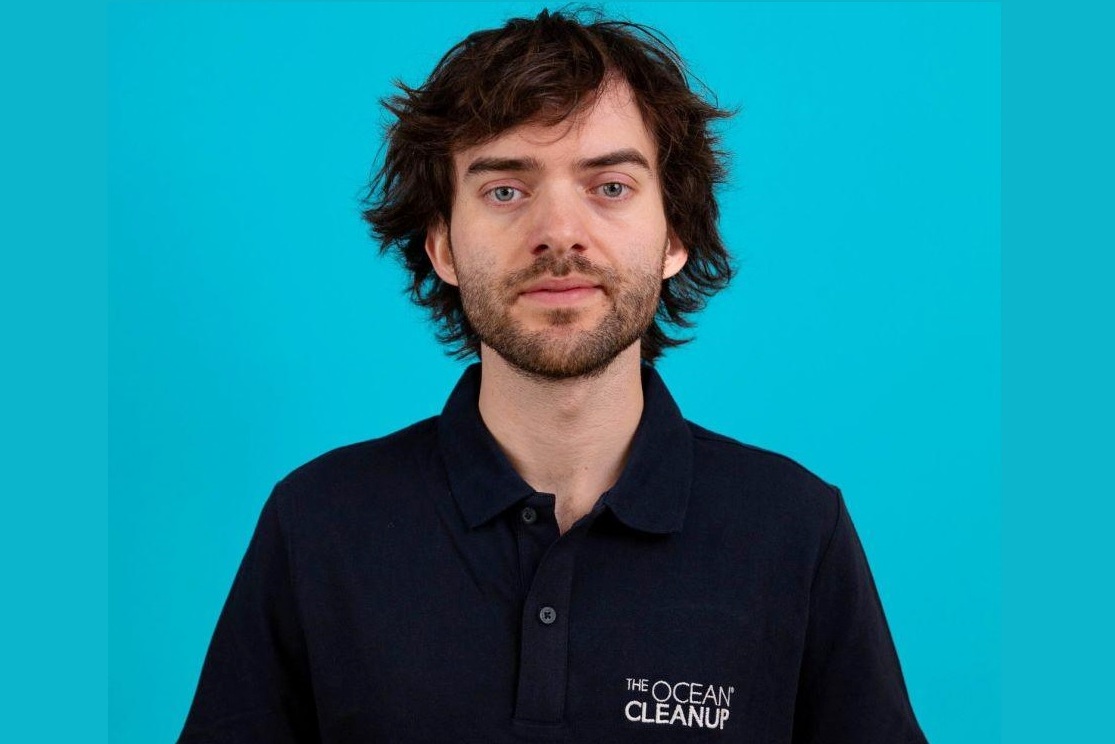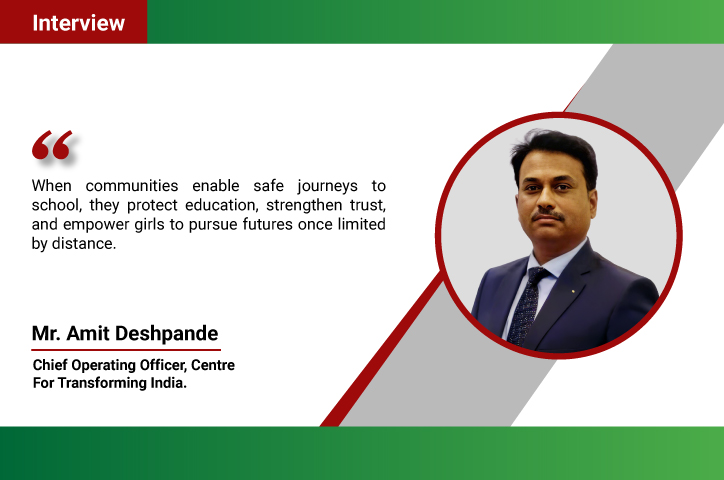The CSR Universe strives to bring the best social and sustainable practices from the development as well as corporate domains to its readers. In this pursuit, we are now broadening our coverage to South Asia to introduce innovative, sustainable and scalable practices and inspiring stories from this region.
Indonesia based Alam Sehat Lestari (ASRI) is a shining example of the power of innovation, community engagement, and holistic approaches to preserving our planet's precious ecosystems Faced with the alarming deforestation rates and the resulting loss of biodiversity, ASRI came into existence in 2007 to take on the ambitious task of finding solutions that addressed both environmental and human health issues in a symbiotic manner. Over the years they have not only been able to address deforestation but also helped in creating robust healthcare systems and sustainable livelihoods for the local communities. By implementing agroforestry, reforestation projects, introducing sustainable farming techniques and providing economic alternatives, ASRI has effectively reduced the pressure on the surrounding forests.
Their remarkable achievements have garnered international recognition, including the prestigious Equator Prize in 2019. They were also recently chosen as one of the recipients of the coveted seed funding from AVPN’s APAC Sustainability Seed Fund supported by Google.org.
In this exclusive interview with Nur Febriani, SKM, MA - Executive Director of ASRI, we delve deeper to explore their journey, their challenges, the transformative impact and their vision for the future.
Scroll down to draw valuable insights from their remarkable story:
Q. Thank you for doing this interview with us! We would like to know about the origins of Alam Sehat Lestari- who are the founders and what led them to start the organization?
In 1993, ASRI and Health In Harmony founder Dr. Kinari Webb was an undergraduate studying orangutans in the rainforest of Gunung Palung National Park (GPNP) in Indonesian Borneo. There she encountered both a threatened natural environment and dire health needs of local communities. Kinari realized these problems were connected, and worked together with a team of dedicated Indonesians to hold 400+ hours of meetings with communities near GPNP. These listening meetings created a blueprint for healthcare and conservation programs that work in harmony, and are the basis for the Radical Listening methodology, used to protect 9.4 million hectares of rainforest worldwide today.
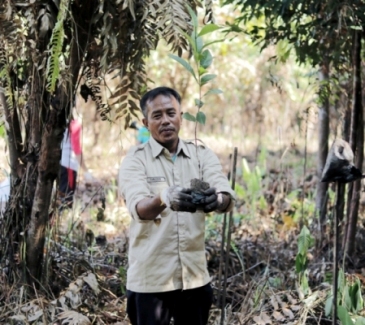 Q. Please tell us about your work- what is it that you do and what kind of impact have you been able to achieve over the years?
Q. Please tell us about your work- what is it that you do and what kind of impact have you been able to achieve over the years?
A ten-year impact assessment of this model, conducted by Stanford University, revealed a 90% decrease in households participating in illegal logging, stabilization of primary forest loss, and 21,000 hectares of secondary forest. Community resilience also improved, seeing results including a 67% decrease in infant mortality and declining instances of malaria and tuberculosis (Jones et al., 2020). ASRI’s support of community-led solutions helps communities and nature thrive, ultimately ensuring greater planetary resilience to the ongoing human health and climate crises. International partner, HIH has replicated the ASRI model worldwide to assist communities in protecting 9.4M hectares of tropical rainforest.
Q. As per information available online, you work with communities around Gunung Palung National Park. How did you choose this region for your work?
We always look for areas where it has high biodiversity, high carbon storage, and where the communities and government are willing to work together with us. Those criterias were met in the communities around Gunung Palung National Park.
Other than that, we also work with communities around Bukit Baka Bukit Raya National Park, West Kalimantan.
Q. How did you gain the trust of indigenous communities and get them on board with your work?
We conduct Radical Listening to facilitate locally designed, community led, and sustainable interventions. We invest in the solutions the communities told us to do so. By doing it, communities are more likely to be on board because we do what they want us to support them in protecting the forests and helping the community's well being.
Q. Could you tell us a little more about the ‘Radical Listening Approach’ and how it has helped you in your work?
Radical Listening is a unique approach to honoring and valuing collective community knowledge and implementing community-designed solutions. It is an alternative to the existing, often colonial, development and conservation paradigms. Radical Listening identifies group consensus solutions and honors the agency and expertise of those living closest to the challenges. In addition, it creates a feeling of ownership and results in community- driven behavior change towards the environment. Radical Listening demands (and herein is what makes it radical) certain upstream and downstream realities be in place. Donors must be ready, not to fund institutional proposals, but community proposals. And, like ASRI, donors must be ready to fund systems solutions, not sector-based interventions. It also requires an understanding that interventions are iterative and will modify themselves according to iterative listening exercises.
Q. What are the most reliable options of sustainable livelihoods that you provide these communities? How do you help them transition from their current livelihoods to more sustainable choices? 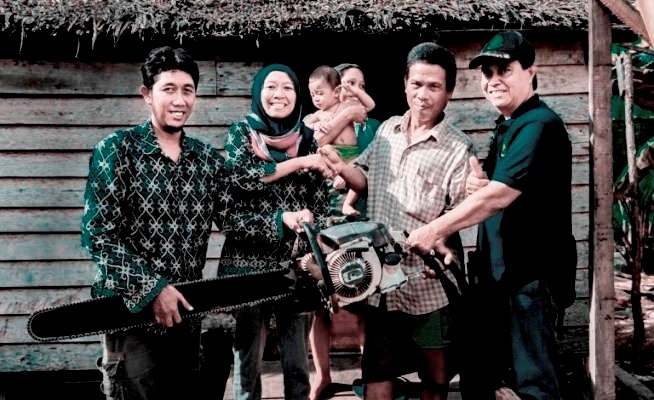
Through the radical listening we identify several livelihoods that were favored by the community to shift to from their current livelihoods. Those are organic farming, micro-businesses, and goat farming. We develop organic farming groups, conduct training in corps management, and help the farmer group in their product marketing. We bought chainsaws from illegal loggers to help them settle micro businesses and mentor them along the way. Through micro-business support, ASRI helps provide seed funding for more sustainable livelihood options compared to logging such as traders, farmers, and fishermen. And we empower widows to be financially independent by involving them in goat farming.
Q. How have you managed to get such good outcomes of your efforts towards improving availability and access to quality healthcare? How can other organizations working with indigenous, rural or marginalized communities replicate your model?
The communities are the front end of our intervention. We conduct Radical Listening and community surveys prior to every intervention, including stakeholder mapping not just in the healthcare department but also livelihood access. These provide a comprehensive baseline on what needs to be improved and how we can reach it (including finding support from various donors and experts). Since we invest and implement solutions coming from them, community and stakeholder involvement and support is almost guaranteed, and thus lead to the success of the programs.
Q. You recently received funding from AVPN’s Sustainability Seed Fund. How do you intend to utilise this funding in the coming months?
The funding from AVPN’s Sustainability Seed Fund will help ASRI, along with international affiliate Health In Harmony, to scale its work through the Rainforest Exchange. Funding from AVPN will be used in the coming months to build out the remote deforestation and biodiversity monitoring technology for Rainforest Exchange.
Q. What message would you like to give policy makers regarding climate change and sustainability? What kind of policy level interventions would you like to see being taken with respect to the geographies that you operate in?
Indigenous Peoples & Local Communities (IP&LC) steward the most climate-critical, biodiverse forests on Earth. However, their voices and solutions are largely absent from the global climate conversation. 91% of lands occupied by Indigenous Peoples are in good or moderate ecological condition. Yet, Indigenous Peoples and Local Communities (IP&LC) receive less than 1% of climate funding worldwide, which itself makes up just 2% of global giving. We must amplify, listen to, and invest precisely in rainforest communities’ expertise and solutions. Doing so is a pathway to stabilize climate, revive nature, and restore social justice.
Q. What word of advice would you give to NGOs that are working with communities that depend on natural resources for their income (e.g. coastal communities, forest tribes, etc)? How can they help these communities become economically stronger without disturbing the delicate natural balance around them?
Use Radical Listening and ask them how to balance their natural environment to thrive and living needs (livelihood, health, education, etc.), listen to the community’s answers and invest in their solutions. They are the experts and know the best way to live in balance with the ecosystem.




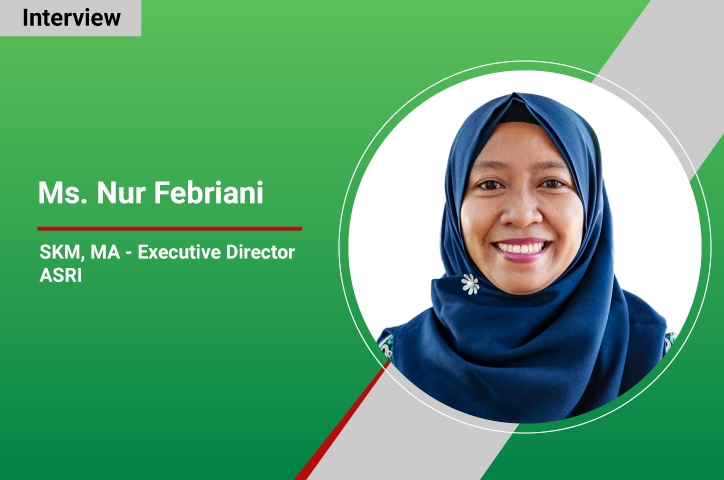
 Q. Please tell us about your work- what is it that you do and what kind of impact have you been able to achieve over the years?
Q. Please tell us about your work- what is it that you do and what kind of impact have you been able to achieve over the years?
